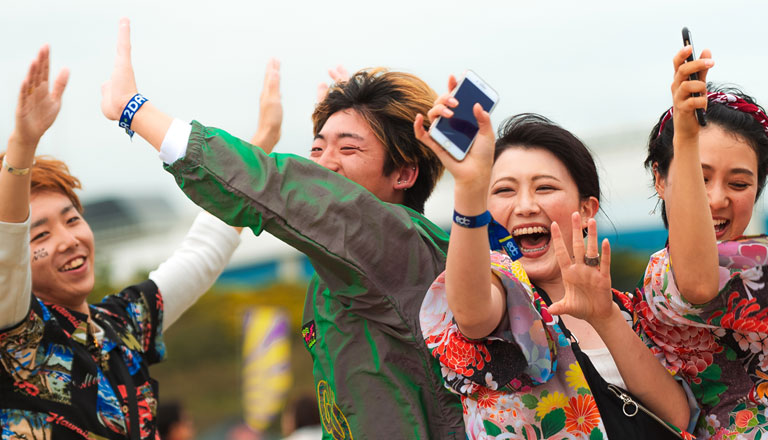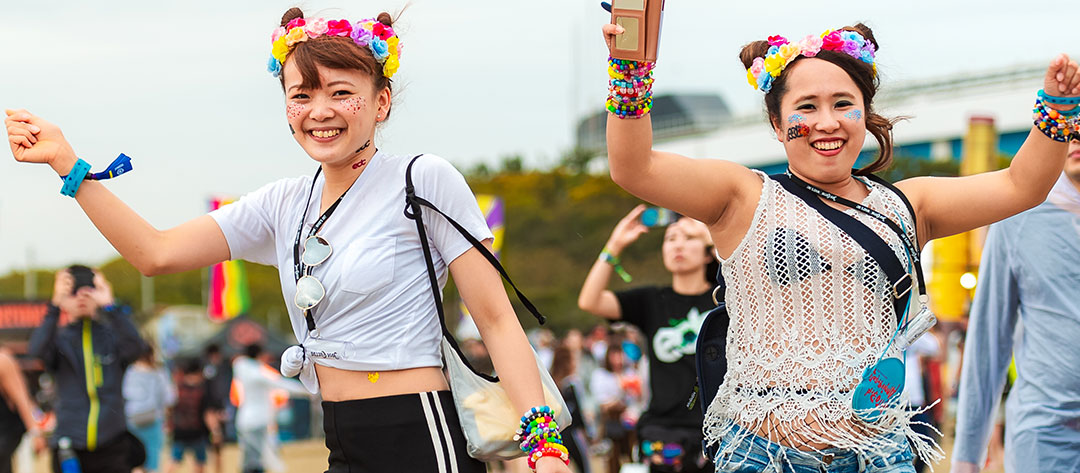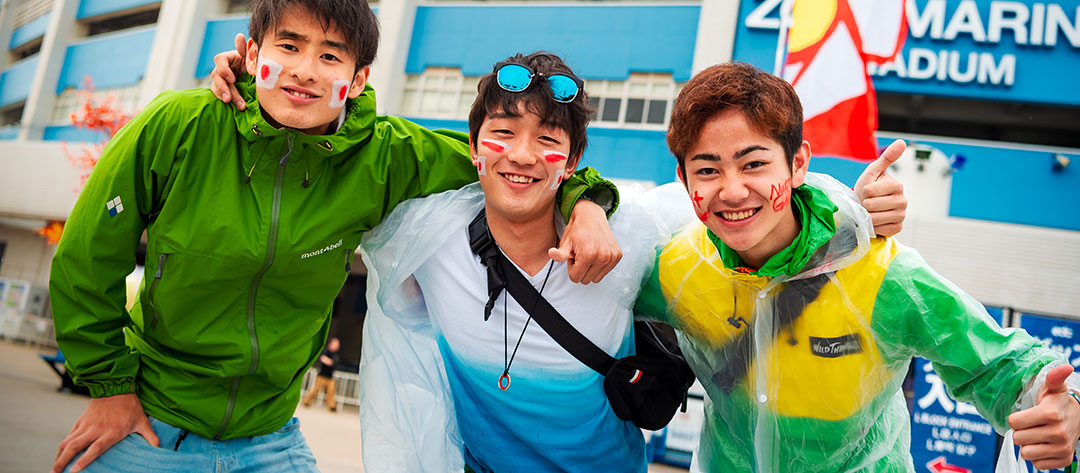
Health & Wellness
We want you to have the time of your life at EDC, and that means being safe, responsible, and respectful to yourself and others. After all, you’re the ones who make this experience so special.
Use the Buddy System

It’s easy to get separated at festivals. Know where your friends are, set up meeting points, and stick together—two or three brains are better than one! If you think a new or old friend needs help, ask our friendly staff to assist, and always leave the show with everyone in your crew.
Fashion & Function

Come prepared for all types of weather, and definitely dress for comfort. Wear lightweight, breathable clothes that make you feel good. If you choose to wear heavy fabrics and faux furs, remember to stay hydrated. Comfortable sneakers are the best way to go, especially if you’re planning to tear up the dancefloor. Sandals and flip-flops can make for sore feet.
Medical Stations

In the first aid tents located throughout the festival, you’ll find teams of medical practitioners ready to care for your every need—free of charge! If you’re lightheaded or nauseated or have too many blisters from dancing the night away, please visit our friendly medical staff, or ask an EDC team member for assistance.
Play Hard, Not High

EDC is an amazing adventure; you can enjoy the show without alcohol. If you’re under 20, you can’t drink—period. If you’re of legal age, be smart about how much you consume. More booze does not equal more fun, and alcohol is not a beverage to cool off or rehydrate with. It’s important to remember that your body weight and height will factor into how much alcohol is safe to consume.
Take Care of Each Other

If you suspect that someone is suffering from a medical issue or potential drug overdose, seek immediate attention at one of the clearly marked medical stations, or find an event staff member. Remember, you will not get in trouble for seeking medical help!
Notify medical or security if a friend is experiencing:
- Vomiting
- Seizures
- Pale skin color or bluish tinge
- Abnormal heart rate and/or breathing (too fast or slow)
- Abnormal body temperature (too hot or cold)
- Delusions, hallucinations or paranoia
- Pupils that don’t react to changes in light
- Confusion, stupor (unresponsive but conscious), coma, or inability to be roused

